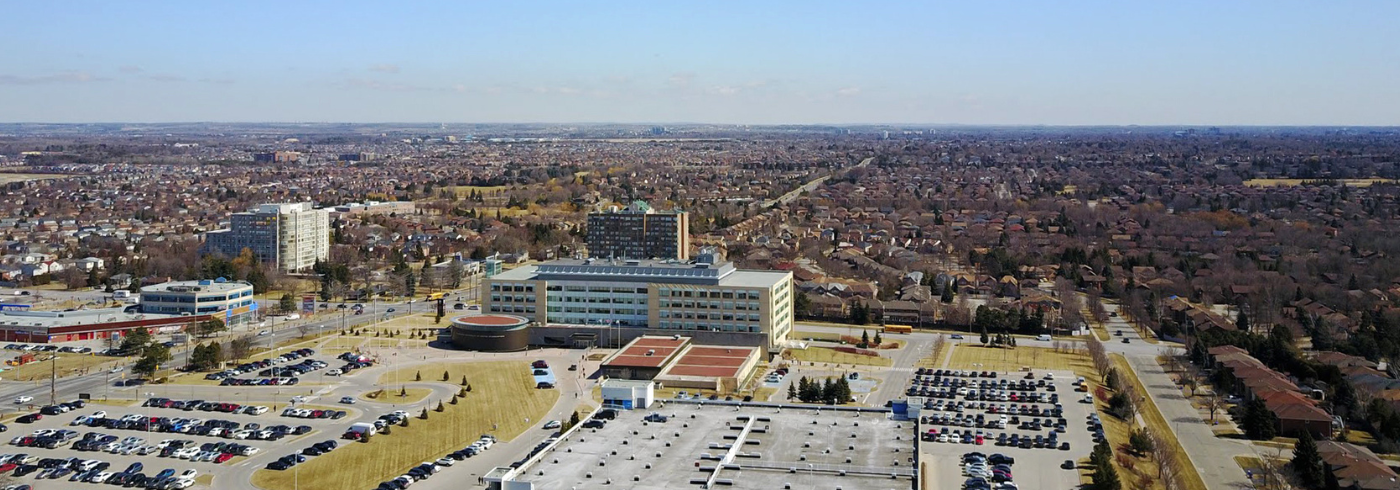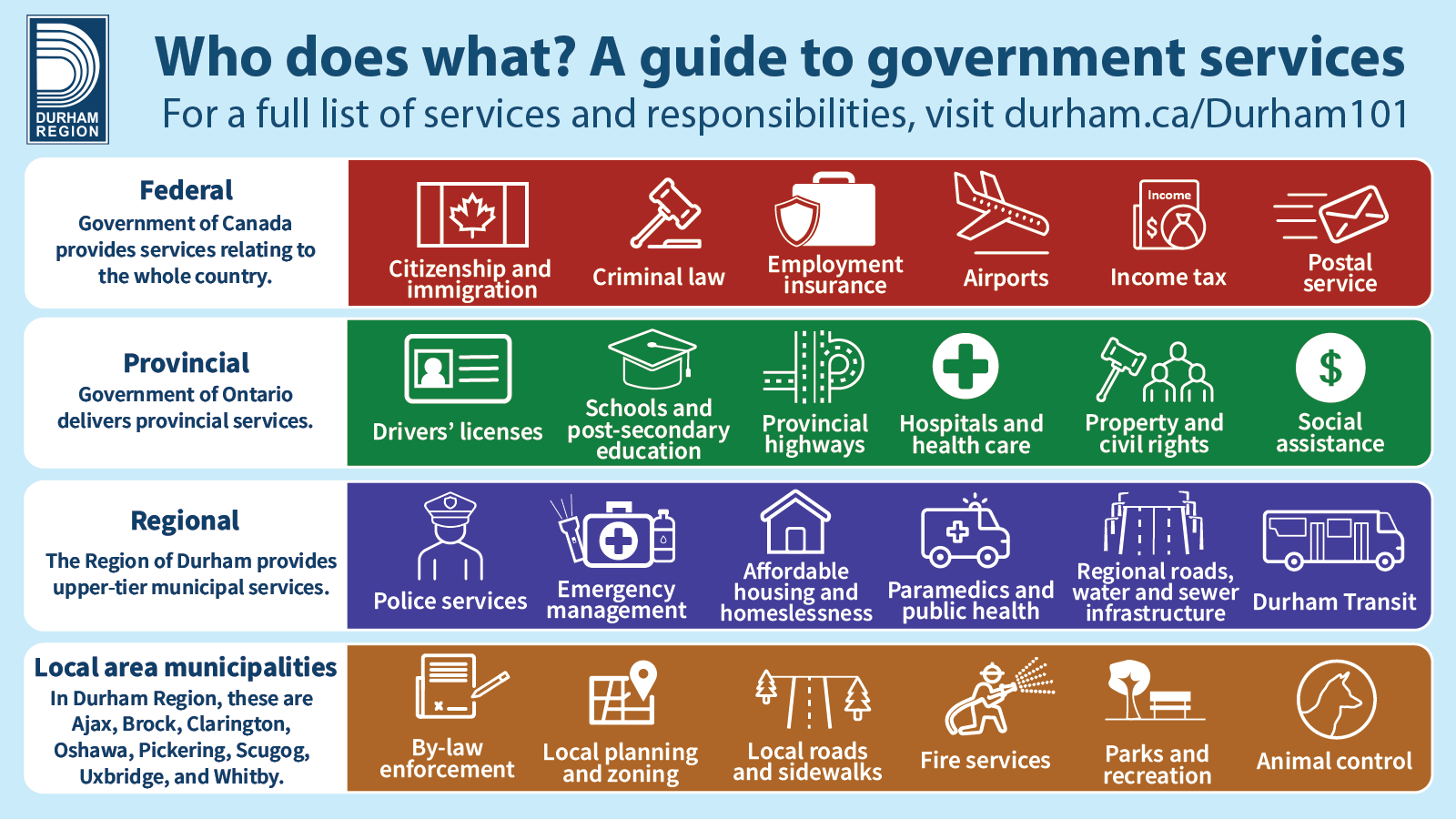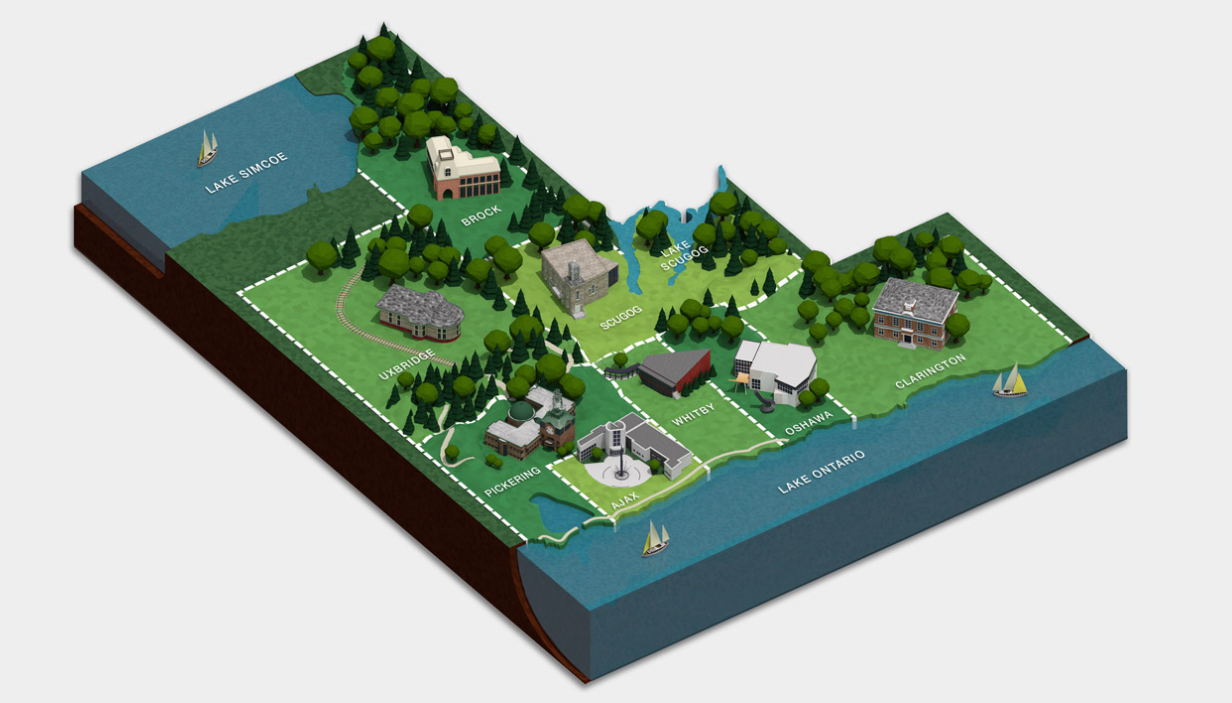
Durham Region 101
To serve Canadians effectively, the government is split into three levels: federal, provincial and municipal – the municipal level can also be divided into two levels, local and regional, just like here in Durham Region. Each level of government has different areas of responsibilities and provides Canadians with different services. Let’s take a look at which services are delivered by each level of government.
Who does what?
| Federal government |
|
The Government of Canada provides services relating to the entire country:
|
| Provincial government |
|
The Government of Ontario delivers services that relate to the province:
|
|
Regional government |
|
The Regional Municipality of Durham delivers a variety of programs and services throughout the region:
|
|
Municipal government |
|
Municipal government is sometimes split into two tiers, upper-tier Regional government and lower-tier local area municipalities. Your local area municipal governments (City of Pickering, Town of Ajax, Town of Whitby, City of Oshawa, Township of Brock, Township of Scugog, Township of Uxbridge and Municipality of Clarington) are responsible for:
|
Click on the image below to view an interactive map of the Region of Durham.
Curriculum materials
Durham Region 101 outlines programs and services provided by Durham Region, the history of the Regional organization, how council is formed, and various other responsibilities, through the eyes of a resident.
The video and following activities were developed to complement the existing Grade 5 Social Studies and Grade 10 Civics Curriculum, and help students learn more about the function of Regional government. The activities are meant to engage students and spark discussion, to provoke questions and encourage collaborative work.
Grade 5 (Social Studies) learning materials
| Activity #1: The value of Regional services |
Organize into groups of four to six students and choose one of the following topics to discuss. Prepare your answers as a brief presentation to the class. What would the impact be to you, as a resident of Durham Region, if these services did not exist?
|
| Activity #2: Regional government is changing |
| Durham Region elected the Regional Chair for the first time in 2014. What role does the Regional Chair play in the community? Discuss how the role of the Regional Chair must work for all eight local area municipalities and balance their interests. After the discussion, nominate two students to develop election campaigns for the role of Regional chair. Organize a debate between the two candidates, and a class vote. After the results are tallied, have a discussion with the class. Why is democracy so important? |
| Activity #3: Developer for a day |
| Scenario: A local field that you spent many summers riding your bicycle on has now become the subject of a re-zoning application for a local developer to build a new, multi-million square-foot shopping facility. Encourage students to take on the role of a Regional Councillor and debate the issue of whether this field should be re-zoned for commercial purposes. What are the impacts to the surrounding area? What are the impacts to the local economy? |
| Activity #4: Career Day |
|
Encourage the class to reflect on the types of careers that may be available at the Region of Durham. In groups or individually, have students visit the Career page on durham.ca and choose a job posting to discuss. How does that position contribute to the services delivered by the Region of Durham? Why is it of interest to them?
|
Grade 10 (Civics) learning materials
| Activity #1: The Value of Regional services |
|
Organize into groups of four to six students and choose one of the following topics to discuss. Prepare your answers as a brief presentation to the class. What would the impact be to you, as a resident of Durham Region, if these services did not exist?
|
| Activity #2: Durham Region's urban and rural mix |
| Durham Region is made up of eight local area municipalities: Ajax, Brock, Clarington, Oshawa, Pickering, Scugog, Uxbridge and Whitby. Do you have family or friends in a different municipality than you live in? What are the main differences between the municipalities that you can recognize? Encourage students to discuss the mixture of urban and rural landscapes within Durham Region, and how it affects local industry and economy. |
| Activity #3: Social media and politics |
| Many elected officials use social media to communicate with their constituents. Organize the class into two groups, to represent the benefits and challenges of communicating with constituents in this way. What might the difference be between the content shared by an elected official versus what is officially shared by the Region of Durham's social media channels? Discuss how messages of opinion and fact differ. |
| Activity #4: Career Day |
| Encourage the class to reflect on the types of careers that may be available at the Region of Durham. In groups or individually, have students visit the Careers page on durham.ca and choose a job posting to discuss. How does that position contribute to the services delivered by the Region of Durham? Why is it of interest to them? |
Contact Us






